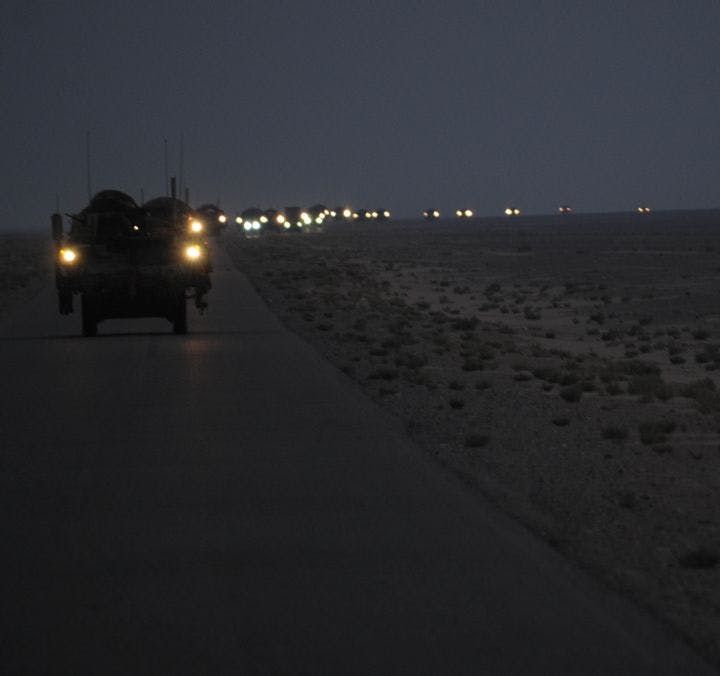Winter 2008
Time for Plan B
– The Wilson Quarterly
Since the end of the Cold War, the foreign policy establishment has stood solidly behind international activism. It's time to admit the experiment has failed.
The bickering over the Iraq war has obscured the bigger truth about U.S. foreign policy, writes Barry R. Posen, a political scientist at the Massachusetts Institute of Technology. Since the end of the Cold War the foreign-policy establishment, though differing over details, has stood solidly behind a “grand strategy” of international activism. Now the results are in: The experiment has failed.
For nearly two decades, Democrats and Republicans alike have supported a policy of maintaining America’s overwhelming military superiority, using force under a range of circumstances, employing extraordinary measures to prevent countries from laying their hands on nuclear weapons, and trying to spread democracy.
Since the end of the Cold War, the foreign-policy establishment has stood solidly behind international activism, but the experiment has failed.
The nation’s vast wealth and technical know-how have tempted policymakers to take action in each of these areas almost simultaneously, even as the costs have escalated. The Pentagon has strained to pacify Iraq, population 27 million. But other potential trouble spots are of a different order of magnitude: Iran has 65 million people; Pakistan, 165 million. Even with the U.S. military confronting weak forces in Iraq and Afghanistan, the Bush administration has been unable to muster public support to finance its foreign policy; it has largely used the national credit card.
And America’s enemies have proliferated. No longer faced with one giant military adversary, the United States has been fighting costly battles against minuscule groups—Somalis, Serbs, Al Qaeda—and losing equipment and soldiers at a rate that is unsustainable.
Globalization complicates American foreign policy because it seems to have exacerbated the insecurities of modern capitalism. When industrial capitalism swept across the West in the late 19th century, it created an urbanized citizenry whose members were vulnerable to nationalist, communist, and fascist appeals, Posen says. Similarly, today’s globalization is likely to increase the supply of those who might be susceptible to new troubadours of extremism. The consensus policy of weighing in on everything, everywhere, cannot be maintained.
Posen proposes instead a “grand strategy of restraint.” The United States should abandon its permanent land bases in Arab countries while relentlessly pursuing Al Qaeda, using its intelligence services rather than the military. It should be a genuine “good guy” internationally, using its great power to help—even more than it has in the past—in disaster relief and other humanitarian interventions under careful guidelines.
American leaders need to develop a more measured view of the risks of nuclear proliferation, Posen writes. “Without the promiscuous use of preventive war, it will not be possible to stop all new nuclear weapons programs,” but the “imperfect regime” of the International Atomic Energy Agency and nonproliferation treaties can slow them down and provide intelligence about their activities. Emerging nuclear powers should be made to worry that they might be vulnerable to preemptive nuclear attacks.
At the same time, the United States should encourage its “longtime wards” to look after themselves. It should withdraw all its military forces from Europe over 10 years and wean Israel and Egypt from financial assistance. Japan should be nudged toward making itself more “alliance-worthy” in Asia.
When the Cold War ended, Posen writes, the nation’s leaders gambled that good intentions, great power, and action could change both the international and domestic politics of the world in ways that would be advantageous to the United States. Now it is clear that “transformation is unachievable, and costs are high.” America’s new policy lodestars should be: Conceive security interests narrowly, use military power stingily, pursue enemies persistently, share responsibilities equitably, and watch and wait. Patiently.
* * *
THE SOURCE: “The Case for Restraint” by Barry R. Posen, in American Interest, Nov.–Dec. 2007.
Photo courtesy of The U.S. Army
